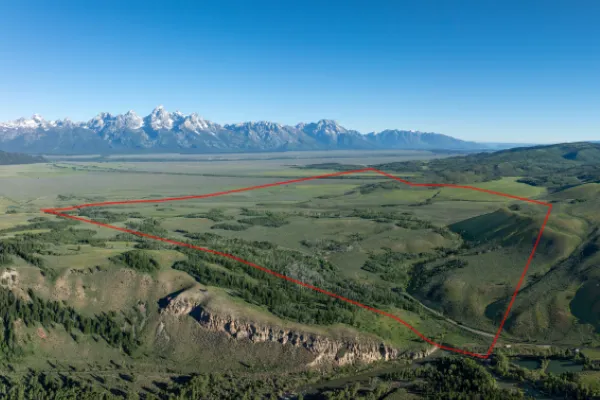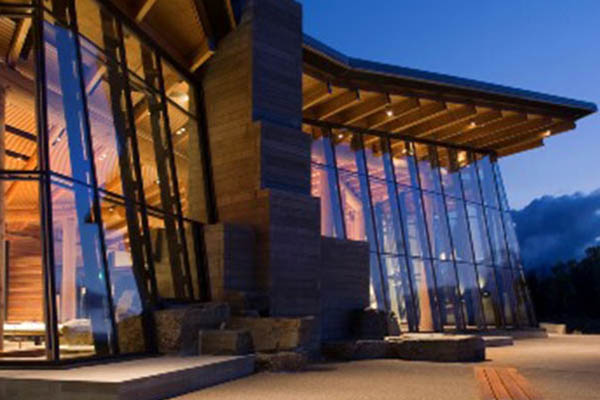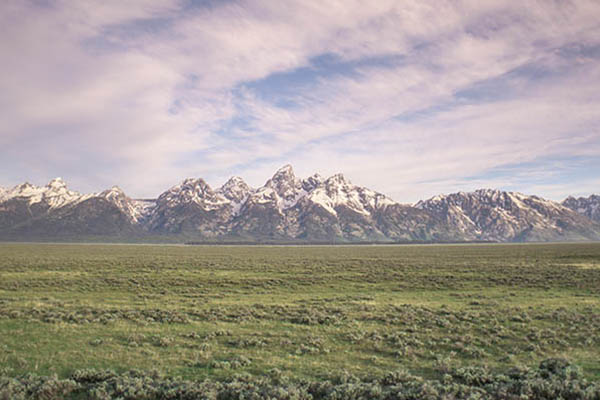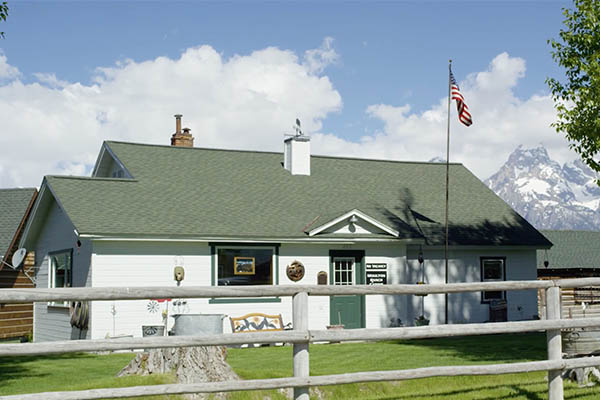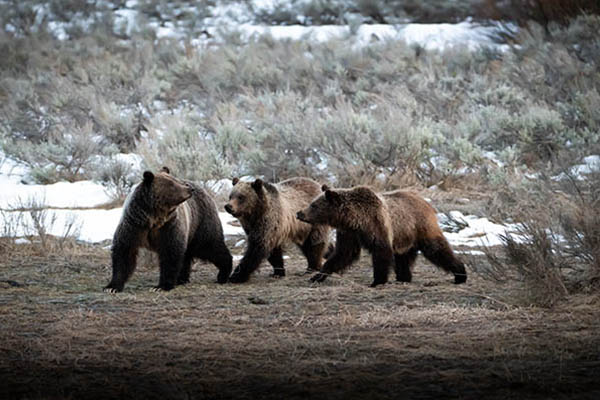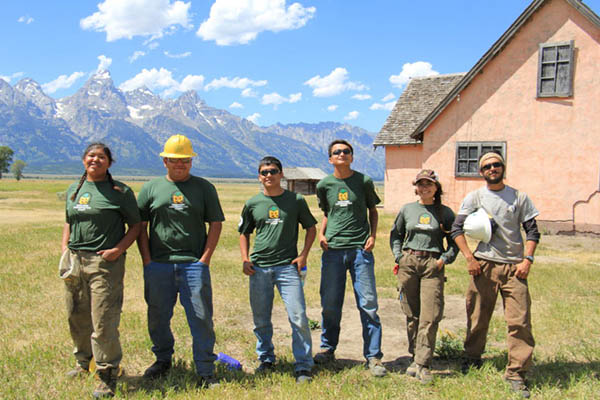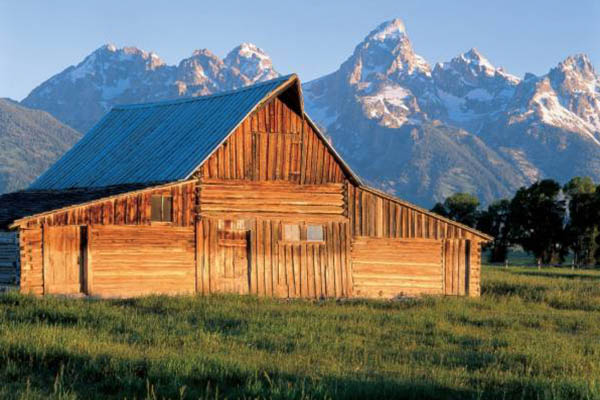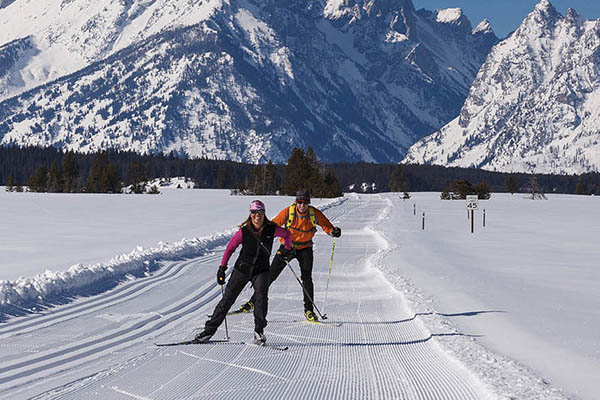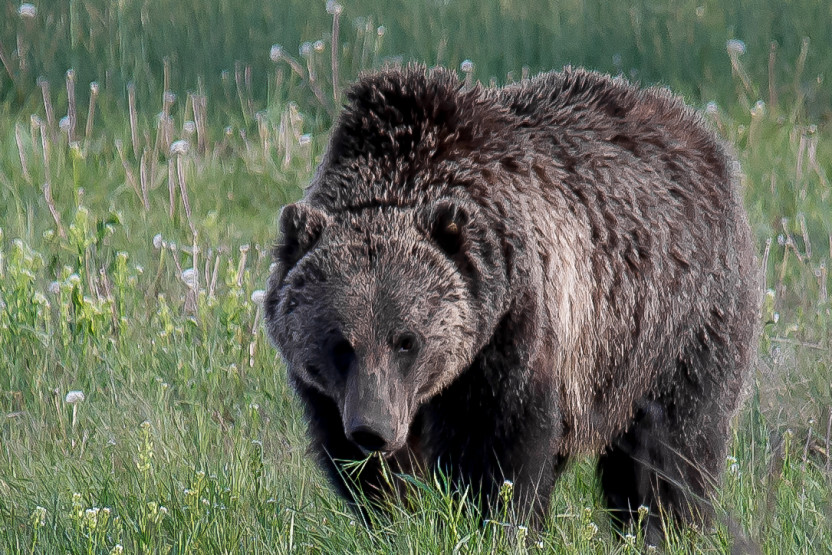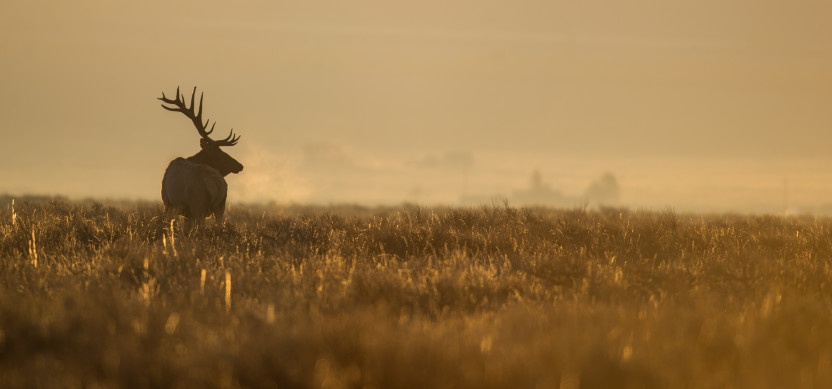
Bull elk at sunrise. Photo courtesy of Sheets Studios
• As of early September grizzly bear 399 still had the two yearling cubs she emerged from a den with this spring. She and most other bears were less visible during late summer due to an excellent huckleberry crop and focus on this important food resource for several weeks.
• Grizzly bear 610, #399’s eight-year-old daughter, has not been as visible this year but has been seen several times over the summer in the park looking good. She was confirmed to have at least one cub of the year shortly after den emergence but apparently lost this cub (to unknown causes) during late spring/early summer.
• Inter-agency Grizzly Bear Study Team scientists reported in August that 2014 was a good year for production of whitebark pine cones–another important food source for bears–in the greater Yellowstone ecosystem. Locally, as of early September it looked like Hawthorne and choke cherry fruit would also be abundant.
• Establishment of non-native mountain goats in the park remains an important concern. During summer park biologists estimated between 20 and 35 goats were in the Tetons, including more young of the year (“kids”) and yearlings. Park managers are following this issue closely and are in the process of gathering more information on goat movements and population dynamics. A mountain goat management plan is being prepared.
• By September, the bison breeding period, or rut, has mostly ended, with rutting periods for elk, moose, pronghorn, and bighorn sheep to follow. Watch for groups of pronghorn congregating in the Kelly Hayfields area, staging for migration during late fall.
• This time of year the forests, meadows, and shrublands are quiet in the mornings as breeding birds abandon territories and begin migrations to distant wintering areas.
• Abundant summer rainfall produced greater than average forage for elk, bison, and other herbivores this year. Depending on fall weather, this can result in delayed migrations to wintering areas.
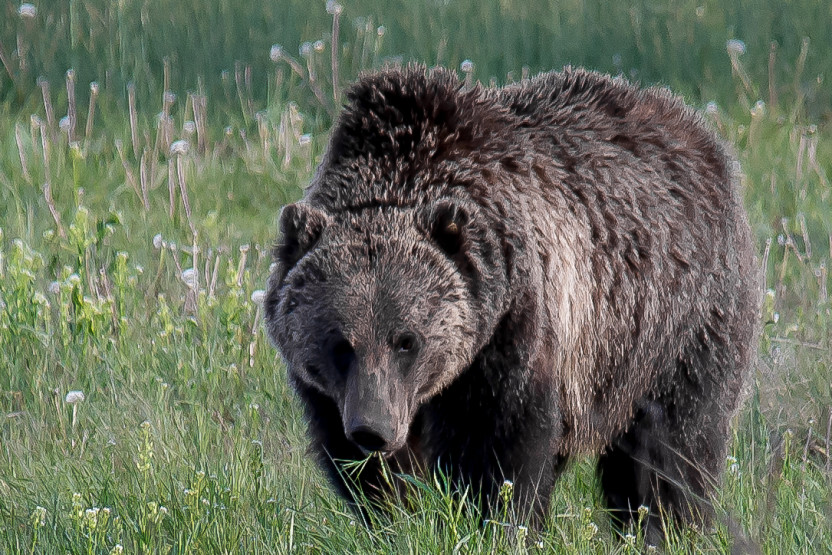
Grizzly bears are very active this time of year to prepare themselves for the long winter ahead. Photo courtesy of Jerry Herman

